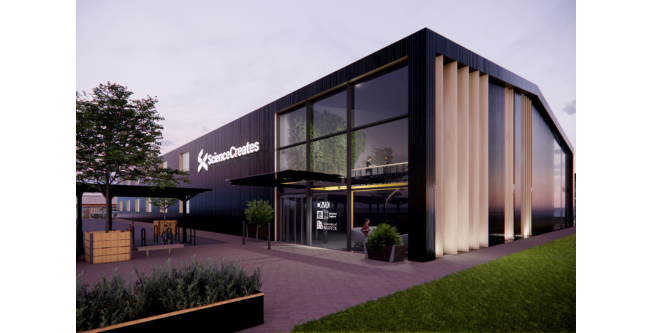Goal 9: Industry, innovation and infrastructure
Build resilient infrastructure, promote inclusive and sustainable industrialization and foster innovation
Our research
Two University medical spinout companies were celebrating in 2024 after their potential to improve health and quality of life for patients was recognised. In January, CellVoyant, an AI-first biotechnology company that focuses on accelerating the development of new stem cell therapies, secured £7.6m of seed funding to support their work, which may have applications for areas such as cancer, diabetes, and spinal injuries. In April, hormone monitoring tech company Dynamic Therapeutics was awarded the prestigious Blavatnik Prize in recognition of their work on metabolic diagnosis and therapies.
Another spin-out company, Albotherm Ltd, secured £1.6m in investment for their work using advanced polymer chemistry to create heat-sensitive material, based on the research of a former Bristol PhD student. In November 2024, Albotherm also received a £500,000 grant from Innovate UK to further develop its technology. This has the potential to make commercial greenhouses more efficient by up to 34%, keeping growing conditions optimal and reducing reliance on active cooling systems.
Our students
In 2023, the University launched the Bristol Entrepreneurs’ Pledge, a scheme where business founders who receive funding from the University pledge to donate some of their future earnings to help fund the next generation of young entrepreneurs. Following a US model, the pledge is an aspirational aim for startup founders to give back once they themselves have succeeded. The first donation through the new scheme came from a former student who received £20,000 in 2010 to help launch his business, which was recently sold to an American software company.
The University’s annual Innovation Showcase for 2024 saw £100,000 in funding available for start-up businesses, with the Runway pitching competition for £75,000 from the University’s student incubator Runway joined by a dedicated £25,000 fund for quantum-related University start-ups. The event also hosted a showcase of work from students in areas including AI, music production, and immersive learning. Winners included companies focused on using data to improve seaweed farming, improving data skills, chemical use in composites, and using light in sewage treatments.
Our communities
The University’s tech incubator, SETsquared, has gone from strength to strength in 2023/24. SETsquared supports the growth of over 100 technology start-ups, with SETsquared companies creating 300 new jobs in 2023 and generating over £45million in revenues, £50million in funding, and achieving record numbers for leadership diversity. In October 2024, Bristol SETsquared partnered with leading regional investment firm QantX to launch a new £300million spin-out-focused investment vehicle that aims to boost the creation and growth of science and technology companies in the region.
In July 2024, the University joined with local partners in health and care, science, and regional government to launch a new initiative to boost the region’s life sciences sector. South West Life Sciences will bring together partners’ expertise across discovery, development, investment and innovation in life sciences. Set up and led by the University’s Translational Research Hub, the aim is to foster joined-up local innovation, catalysing growth by creating connections and networks, and advocating for the region’s life sciences ecosystem.
Ourselves
Bristol has been chosen as the host university for a new £11m Innovation and Knowledge Centre which is set to develop pioneering technology at the forefront of the UK’s Net Zero transition. The REWIRE Centre will focus on research into semiconductors, microchips that are a key part of nearly every electrical device. The new Centre is being delivered in collaboration with the Universities of Cambridge and Warwick, and with partners in industry.
The University signed an agreement in December 2023 with deep tech organisation Science Creates to establish an £8.5m incubator on our new Temple Quarter Enterprise Campus. The incubator will be called OMX, and will focus on supporting spin-out companies with a regional economic focus. This will be the third deep tech incubator the University has developed with Science Creates, the first having opened in 2017, and will offer state-of-the-art facilities including wet-labs, high security, and ultrafast computer networking for around 275 new companies.

